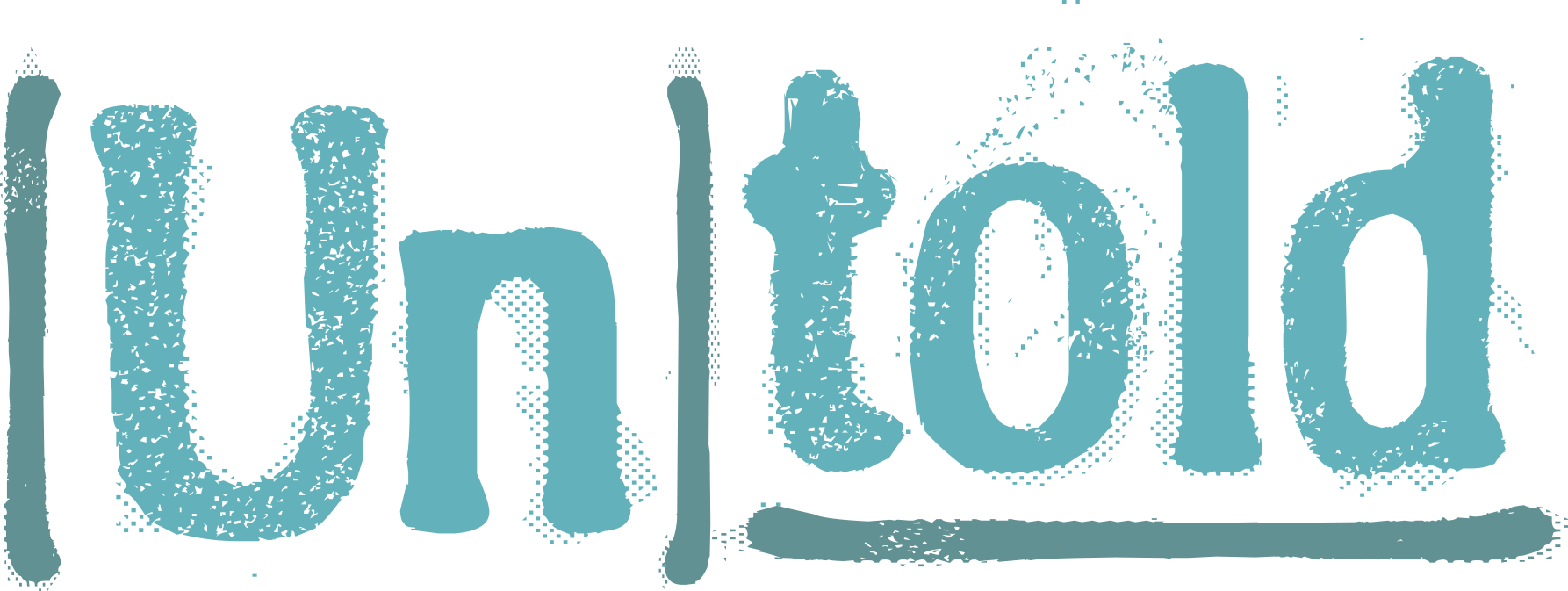不可思议的创新:几分钟Mary Delaney
经过:Dani Clark
This year at Untold Content, we’re focusing on stories of Untold Innovation. As a firm committed to innovation storytelling from thought leaders across organizations and sectors, we have embarked on a journey to uncover stories of innovative thinking that are galvanizing change and growth in four main industries: tech, medical, science and human impact. We’ve asked you to nominate thought leaders in your field who are driving innovation, and you continue to deliver!
Our next innovation story comes from Mary Delaney, Executive Director of社区重要。我们的谈话从利用基于优势的社区建设的方法来接受创新的凌乱方面 - 让读者新的非营利工作。玛丽恢复了以人为本的工作作为秉承人民优势的机会,而不是解决问题。所以,谨慎的时刻,阅读我们与本月创新者的采访,玛丽德利。
P.S.继续在其他人的提名中致以我们在我们的未经讨论的创新系列中突出显示。你可以完成我们的提名形式或者电子邮件给我们with their information.
Mary Delaney的创新故事

Mary Delaney是执行董事社区重要,在那里,她在较低价格山上创造一个充满活力的团队,在较低的价格中创造一个繁荣的繁荣和更多的社区。玛丽是社区的创始人,并于2014年推出了组织,居民们为社区建设创造了一种新的和创新的方法。
UC:你的专业领域是什么?
MD:There’s lots of different ways people describe it, but I would call it community-building-that seems to capture my work overall.
UC: Where does your personal innovation story begin?
MJ:我的个人故事,这真的是驱动我的专业故事的东西,植根于我来自哪里。I grew up in a very low-income family, and there’s a lot of ingenuity and innovation that happens in that space, even though people don’t usually call it that-you’re always trying to think of a different way to do something, a better way to do something. When I left and went to college, I discovered that I really did have that drive to try something different. That drive came from, in some ways, wanting to get out of where I grew up. It wasn’t until later in life that I started calling it “innovation” or “thinking outside the box.”
It wasn’t really a planned out pathway, but when I look back, I see exactly how all the different steps in my life led me here. We can plan as much as we want, but it doesn’t always matter. The experiences are what matter.
UC:告诉我们你目前正在做的创新工作。
MD:Basically, at Community Matters, we’re trying to tackle what most people just call a “problem”, which is, in a nutshell, poverty. We want to approach this work differently. In the traditional way, you look at a social problem, you assess it, and you come up with a “solution”. For as long as I can remember, that’s always been the challenge presented to non-profits: prove that you can solve a problem. In reality, and in a lot of non-profit spaces, you can’t actually solve certain problems because they are systemic.
要讲一个小社区,“解决你的问题,”只是不起作用。如果你接近它,你最终会始终击中墙壁或只是将绑架队放在问题上。就好像你必须欺骗自己进入一个解决心态,当它不是真的可能的时候。虽然您实际上无法在此级别解决它,但您可以改变您接近它的方式,这不是将其视为问题 - 导致不同的东西。这就是为什么我称之为“社区建设”而不是非营利性管理。
在社区重要的是,而不是说,“好的,这是一个问题,让我们解决它”我们说,“好的,这是一个机会,让我们投资它。”
我们附近的人有想法,兴趣,激情技巧 - 所有没有投入的这些事情,因为旧的方法认为人们参与其中一件事:穷人。我们更愿意关注他们的优势和投资的优势,而不是查看社区缺乏的缺失。
One of my biggest fears growing up in a low-income community was that I would always be in that box, that I would always be someone who was poor, and people wouldn’t see all the other things that I bring to this life. So, for a long time, I hid where I came from. A lot of the folks that work here at Community Matters come from similar experiences. Instead of being part of addressing the community’s challenges, a lot of us were just the recipient of someone’s goodwill. The outcome is different when you involve the community you’re hoping to support.
例如,我们有一个食品储餐室,它的核心是一个漂亮的交易服务,对吗?我们有食物,我们发出食物。但在该计划中,我们决定改变我们在进来时提出问题的方式。而不是说,“你需要食物,我们还能给你什么?我们还能帮助您吗?你还需要支持哪里?“我们提出问题,“你在社区中有什么感兴趣?”或者,“有其他方法是否想要参与或参与?”From conversations in the food pantry, community members have become staff members, leaders, a new community council president, and directors of artist initiatives-all of these things that would have never been discovered had we just said, “You don’t have food; we’ll give you food. See you later.”
We work to create opportunities for people to share more about their strengths and not just what they need that day.It’s important to remember in this process, that if you don’t truly believe in the strengths of people [or your work], then you won’t find them.很多时候,它要么默认回到旧模型,要么更容易或更舒适,所以至少你知道你的结果是什么。但是,如果你不相信它,你再也不会发现了所有的潜力。
UC:在谈到信仰方面,我们谈论的大部分内容,无论是对自己还是与你所合作的人们相信,与我们告诉自己的故事有关。我们告诉这些故事的方式有可能培养积极的信念或巩固负面信。您认为讲故事在创新方面的作用是什么?你能描述讲故事对自己工作的重要性吗?
MD:哦,绝对是。对于我们而言,特别是在社区工作中,讲故事就是这样。您可以在非营利空间中获得真正的技术和行话,但故事表明是如何在工作的所有不同部分之间翻译和沟通。这是一个非常自然的社区语言。人们喜欢讲故事。这只是人们倾向于理解事物的方式。
But more importantly, it’s also how you can take this concept and show folks how it actually plays out. I can share an example about how changing the language and approach in our机会枢纽改变了终极结果。我们的一个居民最初来自获得身份证。通过基于她的优势和想法的对话,她最终加入了我们的居民成立的艺术家群体。第二年,她成为艺术家群体的领导者,现在她是社区委员会主席 - 30年内的第一个新总统,以及在我们社区历史中成为总统的第一个人。这就是我在开始时改变几个问题的力量,并投资不同的力量。我们都是故事讲述者,即使我们不认为我们是真的。我知道很多人员被它吓倒了。他们就像,“我不擅长讲故事。我说了什么?”但是,如果你问一些问题,“告诉我你的一天或上周,或者上周站出的一天,”或故事出来了。
There’s a lot of pressure for non-profits when it comes to storytelling. We’ve learned over time that there’s a balance in this industry between fundraising and your work. Those looking for团队筹款思想to get some of the money that they need will be able to find some inspiration online. That’s the weird part about non-profits–in a for-profit, your work is what also generates the money. In a nonprofit, your work doesn’t usually generate the money. You have to go sell it. And it’s a story that you’re selling. So, we have to be very mindful about the stories we tell and not misusing them. It is for this reason that the majority of our successfulfundraising ideas涉及在线元素。使用互联网是一种让你的故事的奇妙方式。还有一个推动讲故事可以在营销或捐赠方面非常强大。这是非常真实的,但我们必须小心不要以某种方式使用这些故事,以便该人不打算要使用的故事。The person has to be at the center of the story, not the organization. We’re part of that person’s story, but on their terms, not on our terms.
UC:你会给未来的创新者给什么建议?
MD:好的,一件建议。让我们来看看,如果你不搞砸了,那么你可能没有对。You have to mess up sometimes to push forward.如果您真正进入新的空间并尝试不同的东西,那么您有时会搞砸,但这是创新的重要组成部分。这是我必须学习的东西。很难做到。你觉得这样一个白痴。你觉得失败了。但是,无论如何都是我们所做的所有最好的事情 - 都来自;当我们意识到,“哦,我们意识到我们搞砸了,”然后改变了。
It never ever happens that you just generate an idea in a brainstorm space, execute it, and then it’s perfect. It doesn’t work that way, especially in community work, because communities are messy. So, if you approach it with the mentality that, “If I didn’t get it right in ideation, then I didn’t get it right,” and you just abandon it, then I feel like you’ll lose a ton of ideas that could have legs. You’ve got to let them go into that space and get messy.
一个问题,我问我每个人都做求职的问题:“当你的想法被踢到周围时,你如何处理它?”因为很多人可以锁在他们的想法上。然后,当它进入该实施阶段时,它开始被踢在一点点,也许变化和变形,他们可能会想,“一定是一个坏主意。”我不能不同意。如果它只是在那里而且根本没有改变,那么它可能不是一个强大的想法。你知道,它没有变得更好。
Thanks for reading Mary’s innovation story. You can read more about our Untold Innovation Stories series in ourUntold Innovation Stories Taploff Post。
而且,不要忘记在您的部门提名创新者。完成我们的online nomination form或者电子邮件给我们。
*Interviews are not endorsements of individuals or businesses.

